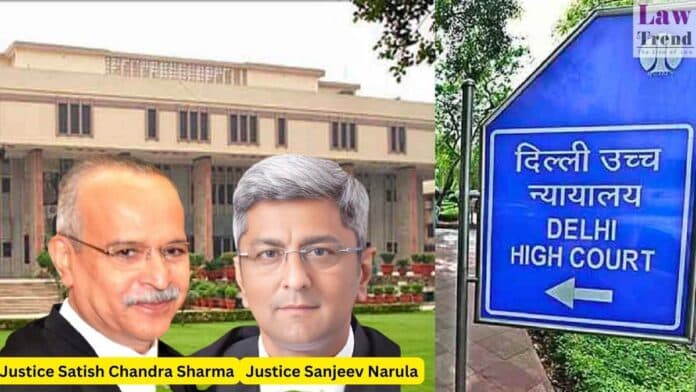The city government Monday told the Delhi High Court a notification has already been issued empowering officers for compounding traffic violation offences on the spot, and all documents available on Centre’s DigiLocker application are being treated as valid by the authorities.
The Delhi government also submitted that any challan issued by the enforcement branch of transport department can be disposed of online and the amount of penalty is acceptable through payment gateways, including debit cards.
The submissions were made before a bench of Chief Justice Satish Chandra Sharma and Justice Sanjeev Narula on a PIL seeking direction to the government to issue notification empowering officers for compounding offences of traffic violation on the spot.

Compounding offences are those for which the violator is allowed to pay the fine on the spot and the driver does not need to visit a court. The violator can pay a fine to the designated officials after the states notify them.
The petition by advocate Amit Sahni stated that after the September 2019 amendment to the Motor Vehicle (MV) Act, people were facing difficulty in compounding the challans issued to them for traffic violations as the violators could not pay the penalty on the spot and they had to approach the court or make online payment on virtual court (traffic) website.
Due to this, the courts have been over-burdened and even the public at large is suffering as they were not able to compound the petty violations at the spot and have to revisit the circle offices for collection of impounded documents even after disposal of challans in virtual court (traffic), the petition, which was filed in 2020, said.
“The Delhi government, in its response to the petition, said the notification in terms of section 200 of the MV Act has already been issued on March 13, 2020, by order and in the name of Lieutenant Governor of NCT of Delhi by K K Dahiya, Special Secretary (Transport),” the reply filed by Delhi government standing counsel Santosh Kumar Tripathi and lawyer Arun Panwar said.
Taking note of the government’s response, the bench said no further orders are required to be passed in the matter and disposed of the petition in entirety.
The government also said all the documents available on Digi-locker / m-Parivahan or other government websites are being treated as valid by the enforcement branch of the transport department.
The submission was made in response to the averment made in the petition that the Union Ministry of Road Transport and Highways has issued directions for digital locking of documents in VAHAN (RC Database), SARATHI (DL Database) instead of physical seizure by police but they were not complied with.
The plea added with the Motor Vehicle (Amendment) Act, 2019 coming into force, the penalties for traffic violations have been raised manifold and the Delhi government’s transport department has not yet notified the authorised officers and the compounding fee.
The plea also said Virtual Court (Traffic) portal www.vcourts.gov.in is not accepting payment of traffic challan above Rs 2,000 through debit cards and it has to be done through credit cards or online banking.
Also Read
“The auto drivers or other poor strata of people, who are not having any credit card or online banking account are not able to make payment of challan on virtual court (traffic). The problem is due to the issue of merchant discount rates. The MDR charges are needed to be borne by the vendor/ respondent no.1 (Delhi government) in this case.
“But no clarity is provided by the Delhi government for bearing the MDR charges for payments above Rs 2,000. Urgent directions are required in this regard,” it said, adding that charges are being deducted from the violator’s credit card.
The amended Act provides for a penalty of Rs 10,000 for not giving way to emergency vehicles and penalties for over-speeding range from Rs 1,000 to Rs 2,000.
Penalty for dangerous driving has been increased to Rs 5,000 from Rs 1,000, while drunken driving under the new law attracts a fine of Rs 10,000.
Driving without insurance is punishable with a Rs 2,000 fine, while driving without helmet attracts a Rs 1,000 penalty. The fine for not having a valid pollution under control (PUC) certificate may go up to Rs 10,000.







